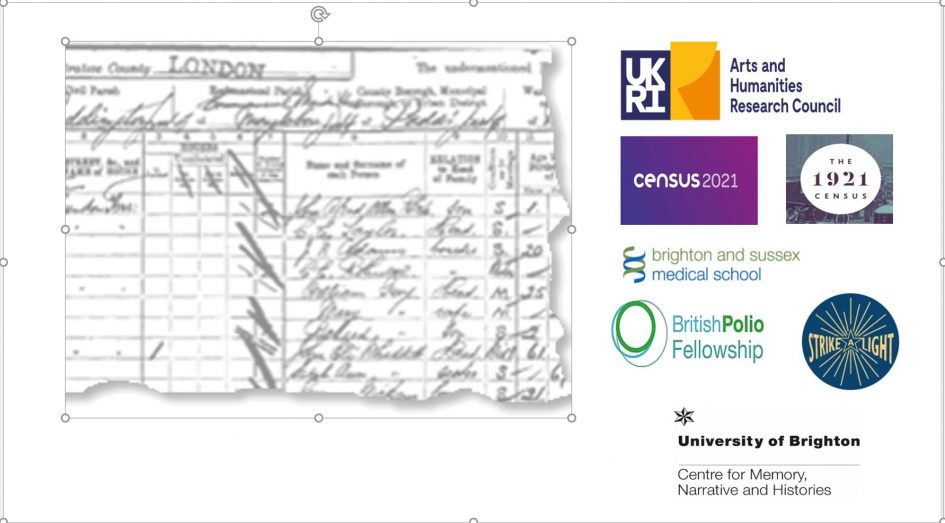Deborah Madden has been awarded £10,000 from the University’s Research Culture funding on diversity and inclusion, which will help to further build on her successful AHRC project that made use of historical census data to highlight changing patterns in health, disability, housing, employment and identity. This funding will be used to investigate the newly released census data for 1921. After being locked away and archived for 100 years, the census taken in 1921 is now available to researchers and the public. The project is partnering with several community groups, charities and local schools across Sussex to uncover local, national and transnational histories. The project has seen several students involved in the community and school sessions, as well as independent research linked to the census findings. This latest phase of the Census 21 project will take place between May and July when a number of workshops, webinars, public lectures and forums will take place – more details of the programme to follow.
The census data for 1921 is hugely important as it will reveal the devastating impact of World War I on the population and local communities. The loss of young men, the wounded living with injuries and disabilities, widows, and orphans, plus the ongoing effects of the last global pandemic, the Spanish Flu of 1918. Society was undergoing seismic changes with women’s rights, jobs, industrial and economic turmoil, as well as new technology and transport. We can see many echoes with current concerns and upheavals.
Deborah Madden and Nicola Benge

